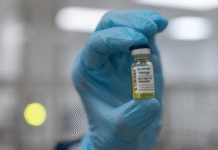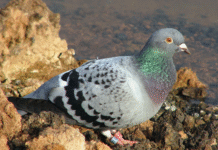AS BIOTECHNOLOGY and other bio-based graduates often lament the lack of job opportunities in the science sector, a local company is offering research grants to propel young talent to further equip themselves academically, and thereby securing research opportunities and employment in more novel areas of science and technology.
The “Biosensor Research Aptamer Grant” offered by Biogenes Technologies Sdn Bhd (Biogenes) is a privately-driven initiative to stimulate and drive the development of specialised talent in the niche areas of digital biotechnology namely in the area of in silico aptamer design, biosensors and aptamer-based therapeutics. This grant, already in its third year running, has so far funded seven projects by Malaysian researchers.
Aptamers are short sequences of oligonucleotides (DNA or RNA) that can as ligand to bind with specific targets such as proteins, peptides, hormones or other small molecules. This strong and specific binding ability allows aptamers to substitute animal-derived antibodies in diagnostic and therapeutic applications.
Nurul Hana Mas’od, a PhD student from Universiti Sains Islam Malaysia (USIM) was working on developing electrochemical-based biosensor using enzyme to detect and measure tyramine levels in meat. Tyramine is a naturally occurring amino acid but high levels of it is toxic and can be found in high amounts in spoiled meat or when meat is cured, processed, or smoked such as in sausages, salami, pepperoni, and even aged cheese.
Hana’s study caught the attention of Biogenes and it was thought that the use of aptamers instead of enzyme to detect tyramine would add value to her research work. Tang Kok Mun, CEO of Biogenes suggested to Hana that aptamer would be a promising alternative to enzyme for the detection of tyramine as it is more specific and stable in nature.
In May 2022, she received Biogenes’ grant to partially sponsor her postgraduate attachment at Queens University of Belfast, Northern Ireland, UK. There, she worked with Professor Katrina Campbell at the Institute for Global Food Security (IFGS), who is one of the leading experts in food safety. In UK, Hana went on to develop and validate aptamer-based biosensor (aptasensor) to detect and measure tyramine in chicken meat with support and advisory from Professor Katrina.
“Being a researcher, I believe in translating my knowledge into tangible benefits for society, and I hope my invention makes a change in our society,” Hana saID.
“My first exposure to biosensor was during my undergraduate studies in industrial chemistry, at Universiti Teknologi Malaysia (UTM), where I developed the biosensor to detect pesticides in lake water,” reminisces the young researcher recollecting her calling in this area of research.
That experience turned out to be the driving force for the young graduate to further her PhD in biosensors because she saw it as a promising tool for the early detection of contaminants, microbes or pathogens that could prevent many diseases and food safety problems.
Prior to her UK stint, Hana underwent two weeks of training at the Biogenes laboratory where she worked with Biogenes aptamer team to design several aptamer candidates for tyramine.
At Queens University, Hana successfully completed the “proof of concept” in validating the aptamer against tyramine on electrochemical biosensor platform.
The next stage will be developing a prototype product and performing field testing for the presence of tyramine in meat samples.
“Working with international experts has absolutely added value to my career. I gained new insights in the biosensor field,” she said.
“My attachment in the UK has also sparked potential tripartite industry-academia collaboration between USIM, Biogenes and Queens University of Belfast. Biogenes is now collaborating with my PhD supervisor, Dr Syaza Azhari to establish an aptamer lab which is also known as APTLAB in USIM,” Hana explained of the follow-up success.
The young researcher also elaborated that initially, her study was looking into the level of tyramine and the freshness of the chicken meat. While conducting literature review, she also found that the presence of tyramine can be used to determine if the chicken is slaughtered according to Islamic rites.
For the meat to be considered halal, all blood must be drained out from the meat. If the blood stays in the meat for a longer time, the tyramine content will be higher and it raises the halal status concern.
This added another perspective to the collaboration between USIM and Biogenes as USIM can offer additional science-based value to its Islamic scholars.
“My experience in Belfast was an enriching one. The lab instruments are far more advanced and readily available to use. They also have clear research pathway which allows more researchers to immerse in this field of biosensor,” said Hana.
“In Malaysia, we are more desk-bound to churn out papers within a specific time but in the UK they practice a more open learning culture. Every Wednesday, there is a casual conversation between lecturers and students so they can exchange knowledge and discuss their areas of work. This is to encourage collaborations among academia, and overcome the culture of working in silo,” she adds.
“I am grateful for Biogenes for this pivotal moment in my career,”said the young mother, who had to leave her then six-year-old son behind for more than three months for this unforgettable overseas experience.















